CogSci History at UConn
The Cognitive Science Program began as a grassroots effort led by a devoted core of UConn faculty in 1996, with the vision that it would become a hub for Cognitive Science education at UConn. These founding members sought to fuse the diverse approaches and perspectives from the fields of psychology, linguistics, philosophy, neuroscience, anthropology, computer science, and speech and hearing sciences. The program started initially as an undergraduate program and has since grown to offer a graduate certificate program for doctoral and continuing education students.
Our CogSci faculty affiliates have been instrumental in founding the Institute for the Brain and Cognitive Sciences (IBACS), the Brain Imaging Research Center, and multiple federally funded training grants in the area of brain and cognitive sciences.
Current CogSci Director
As Director of UConn’s Cognitive Science Program, Dr. Xygalatas hopes to help strengthen the program’s interdisciplinary character. He believes that all of our students should have the opportunity to cultivate two fundamental skillsets: one grounded in the sciences and the ability to evaluate truth claims through epistemological grounding and a thorough understanding of the scientific process; and one grounded in the humanities and the ability to relate to other people’s perspectives, through engagement with the arts, experiential learning, study abroad, fieldwork, and community engagement.
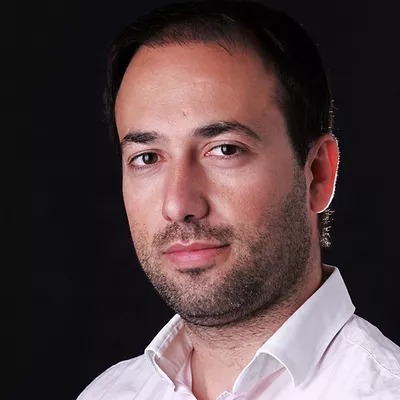
Dr. Dimitris Xygalatas
Term: 2024 – Current
Past CogSci Directors
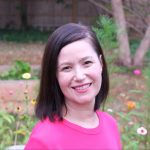
Dr. Erika Skoe
Term: 2021 – 2024
Dr. Erika Skoe is an associate professor in the Department of Speech, Language, and Hearing Sciences and the current director of the CogSci program at UConn. Dr. Skoe studies the cognitive neuroscience of hearing. She explores how the brain and mind process auditory signals; adjust to the quality of the listening conditions; change from past and ongoing auditory experiences; and influence the ability to communicate, learn, and perceive.
Dr. Skoe sees herself as a direct beneficiary of the richly collegial Cognitive Science community, and she credits this as one of the core reasons she took on the director role. She felt it was important to give service to a community that had supported her.
Dr. Skoe became a director as the University was making a full-scale return to in-person activities after pandemic shutdowns. The pandemic highlighted the importance of fostering faculty-student dialog, preparing students to be global citizens, and removing barriers to educational participation. With this backdrop, Dr. Skoe invited graduate students onto the Cognitive Science Steering Committee and oversaw a new program that launched in the summer of 2021 to encourage more cognitive science students to study abroad. Dr. Skoe believes that the transformative experience of studying and traveling abroad should not be limited to just those who can afford it.
Dr. Letty Naigles is a professor in the Department of Psychological Sciences. Dr. Naigles’ research primarily focuses on the acquisition of language, and the development of cognition. Additionally, she extends these investigations to neurodivergent children, such as young children with autism, to see how having a different brain affects language acquisition.
As director of the CogSci program, Dr. Naigles continued to stretch collaborations, particularly with folks in the computer science disciplines. At the time, Dr. Naigles noticed that students were not receiving enough experience with coding and programming that are central to the cognitive sciences. This led to the creation of Dr. Stefan Kaufmann’s Coding for Cognitive Science course. Additionally, as many people were deeply disturbed by the death of George Floyd in the summer of 2020, the Africana Studies Institute putout a missive on how the University could improve the treatment of minoritized groups, especially Black people. One such way to achieve this was to have a course in every major that is related to anti-racism. Thus, Dr. Naigles, along with Dr. Bede Agocha, developed the Language and Racism course.
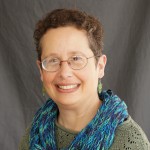
Dr. Letty Naigles
Term: 2018-2021
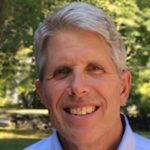
Dr. Carl Coelho
Term: 2014 – 2017
Dr. Carl Coelho is Professor Emeritus from the Department of Speech, Language, and Hearing Sciences (SLHS). Dr. Coelho’s research explores acquired language disorders, and how these disorders disrupt complex language processes inherent in everyday life. By studying language at the level of discourse, Dr. Coelho is able to examine both the linguistic and the cognitive components necessary for social interactions. More specifically, Dr. Coelho has investigated adults with aphasia, as well as adults with traumatic brain injury (TBI), and how they engage in discourse — an area that heavily relies on social cognition.
During his time as director, Dr. Coelho was involved in the implementation of an Integrative Graduate Education and Research Training program (IGERT) grant, which facilitated the ongoing development of the CogSci program within the College of Liberal Arts and Sciences. As a former director, Dr. Coelho praises those involved in the CogSci program who embrace collaborations that transcend disciplinary silos. He believes that an increase in interdisciplinary collaborations that break traditional boundaries will enhance the diverse scientific nature of the program.
Dr. Diane Lillo-Martin is a Board of Trustees Distinguished Professor and Head of the Linguistics Department at UConn, as well as Senior Scientist at Haskins Laboratories. Dr. Lillo-Martin’s research explores human language acquisition. More specifically, she studies how children acquire sign languages. Her research looks at sign language acquisition in the context of different types of input, as well as the ways in which different languages being acquired (spoken and signed) interact with one another. By studying sign language structure, Dr. Lillo-Martin’s research furthers our understanding of the variability across languages.
During her time as director of the CogSci program, Dr. Lillo-Martin and members of the CogSci community were involved in the development of the undergraduate major and the graduate certificate program. Dr. Lillo- Martin (among others, notably Drs. Jim Magnuson and Whit Tabor) was also integral in the development of a grant proposal which led to the hiring of significant and contributory members of the CogSci community, including Drs. Marie Coppola (PSYC) and Emily Myers (SLHS & PSYC). She cites this experience as one that really captures the essence of the program, as it involved people across different areas of scientific study coming together and accomplishing a goal of recruiting scientific minds from different backgrounds of study to our community in order to embrace the collaborative work that is at the heart of cognitive science research.
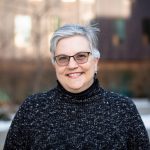
Dr. Diane Lillo-Martin
Term: 2011-2014
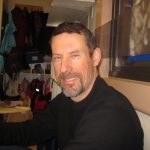
Dr. Tom Bontly
Term: 2006-2011
Dr. Tom Bontly, associate professor in the Department of Philosophy, was the first to serve as the official director of the CogSci program. Dr. Bontly’s experience in the cognitive sciences predates his time at UConn; he received a minor in cognitive science in graduate school. At the time of his directorship, Dr. Bontly’s research focused on the philosophy of mind, with a specific interest in the nature of representations — a topic that intersects the philosophy and cognitive sciences domains.
During his time as director, Dr. Bontly and members of the Steering Committee developed a “memorandum of understanding” to formalize the existence of the CogSci program. They negotiated an agreement that the departments of Linguistics, Philosophy, Psychological Sciences, and Speech, Language, & Hearing Sciences would serve as the “home base” for the CogSci program. Much of what Dr. Bontly envisioned for the program has since come to fruition: a formal undergraduate major/minor, a graduate certificate program, increased interdisciplinary research, and the successful application of an Integrative Graduate Education and Research Traineeship Program (IGERT) grant.
Dr. Jay Rueckl, professor from the Department of Psycho- logical Sciences, was the inaugural director of the CogSci program. As a researcher who studies reading and memory, Dr. Rueckl’s work is the epitome of the cognitive sciences. His research includes a focus on the brain bases of reading and memory, and neural networks.
As the inaugural Director of the CogSci program, Dr. Rueckl and others involved were looking for ways to strengthen and leverage ties across various programs and departments, particularly with regards to language research. They started by establishing the undergraduate major and a talk series, both of which are active even two decades later!
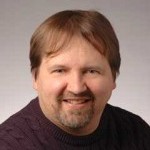
Dr. Jay Rueckl
Term: 1996-2006